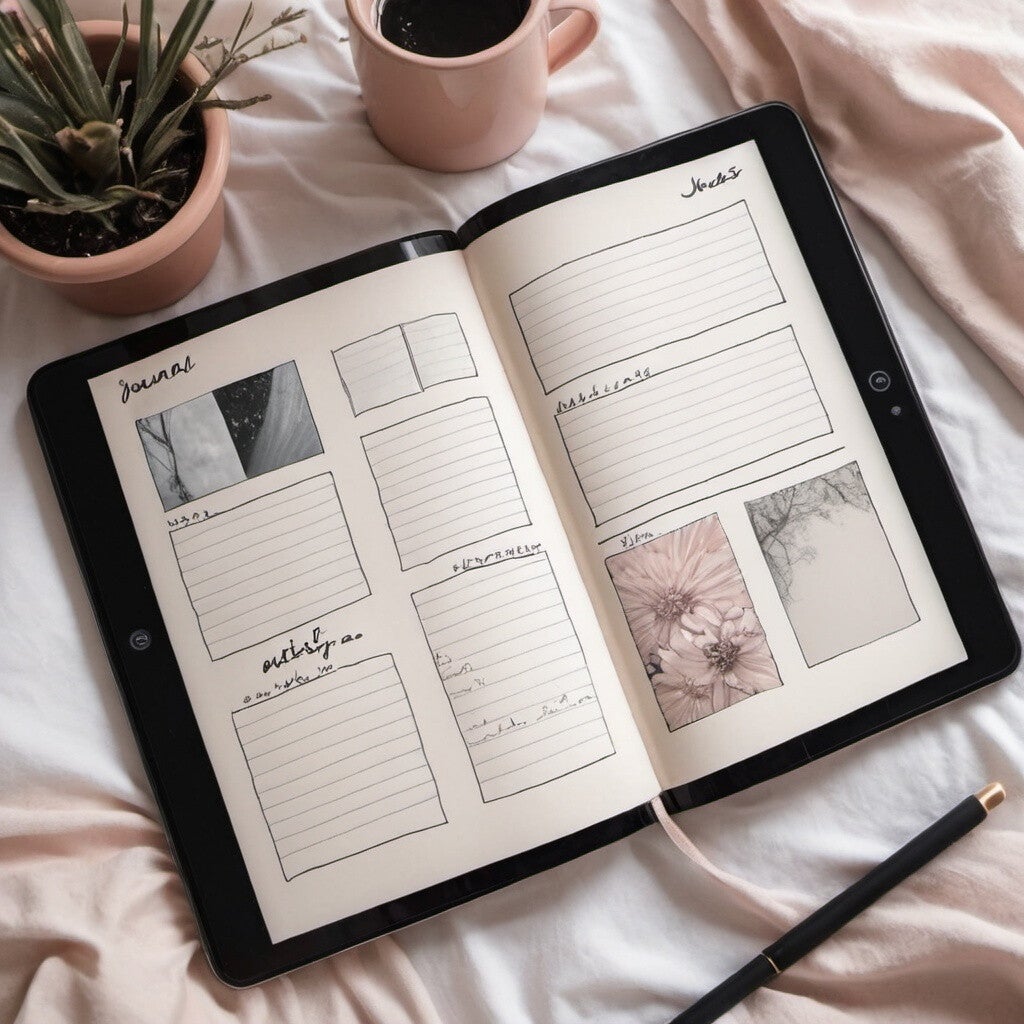Gratitude Journaling: A Simple Practice for Positive Thinking
Gratitude journaling is a transformative practice that encourages individuals to reflect on the things they are thankful for. By taking just a few minutes each day to write down positive experiences or moments of appreciation, children can shift their focus from negativity to positivity. This simple act not only enhances mood but also fosters resilience, making it easier to cope with challenges. To get started, together name 3 things you are grateful for every morning. You can also download the RBB toolbox app or provide children with a dedicated journal where they can express their thoughts freely. Encourage them to write at least three things they are grateful for each day, whether it's a supportive friend, a beautiful day, or a favorite activity. Create some journaling prompts that can help with starting the practice. Over time, this practice can cultivate a habit of positive thinking, helping children develop a more optimistic outlook on life.
Ready to Start?
Download the App or have a dedicated journal with prompts. Start small, just a few minutes a day, and see the changes.
Because Gratitude journaling isn’t about writing amazing stories —it’s about creating a consistent practice to get to know yourself.

Gratitude
What is Gratitude?
Gratitude is the practice of noticing and appreciating the good things in life. It’s feeling thankful for big moments—like celebrating with family—or small ones, like a smile from a friend or a beautiful sunset. Gratitude helps us focus on what we have instead of what we lack, creating a positive mindset that lifts our hearts and minds.
Why is Gratitude an Important Step in Mindfulness?
Gratitude is a foundational practice in mindfulness because it trains us to be present and aware of the good around us. Here’s why it’s a key step:
-
Shifts Focus to Positivity: Gratitude teaches us to find joy in everyday moments, cultivating a more optimistic outlook.
-
Strengthens Emotional Awareness: Being thankful helps us recognize and value feelings of contentment, joy, and connection.
-
Reduces Stress and Anxiety: Gratitude shifts attention away from negative thoughts, promoting calm and relaxation.
-
Enhances Mindful Presence: The act of appreciating something fully anchors us in the moment, deepening mindfulness practice.
-
Fosters a Growth Mindset: Gratitude encourages curiosity and openness by highlighting the good in both successes and challenges.
By starting with gratitude, we set the stage for mindfulness by developing awareness, presence, and positivity—powerful tools for a balanced and resilient mind.

How the RBB Toolbox App Can Help
The RBB Toolbox app makes practicing gratitude easy and fun with guided gratitude journaling prompts that help kids, teens, and beginners explore what makes them feel thankful. Journaling about gratitude strengthens the habit of noticing and appreciating positive moments. With regular practice, users can build stronger mental health, better focus, and a happier mindset.
Start your gratitude journey today with the RBB Toolbox, where small moments of thankfulness turn into powerful tools for emotional strength and mindfulness!

Journaling
What is Journaling?
Journaling is the practice of writing down your thoughts, feelings, and experiences. It can be as simple as jotting down what made you smile today or reflecting on something that felt challenging. There are no rules—you can write, draw, or list ideas in a way that feels right for you. Journaling is a personal space where you can explore your inner world, express emotions, and track personal growth.
Why is Journaling an Important Step in Mindfulness?
Journaling is a foundational step in mindfulness because it helps develop awareness, clarity, and emotional balance. Here’s why it matters:
-
Enhances Self-Awareness: Writing helps you tune into your thoughts and feelings, creating a deeper understanding of yourself.
-
Encourages Present-Moment Reflection: Journaling slows down your thinking, allowing you to focus on what’s happening now instead of dwelling on the past or worrying about the future.
-
Improves Emotional Regulation: Putting feelings into words can release tension, reduce anxiety, and make challenging emotions easier to manage.
-
Fosters Gratitude and Positivity: Gratitude journaling is a powerful tool for shifting attention to the positive aspects of life, reinforcing a hopeful mindset.
-
Strengthens Problem-Solving Skills: Writing clarifies thoughts and helps organize them, making it easier to approach challenges with a fresh perspective.
By making journaling a regular habit, you create a mindful space to reflect, grow, and centre yourself. It’s a simple, accessible tool that helps turn everyday experiences into moments of learning, gratitude, and emotional resilience.

